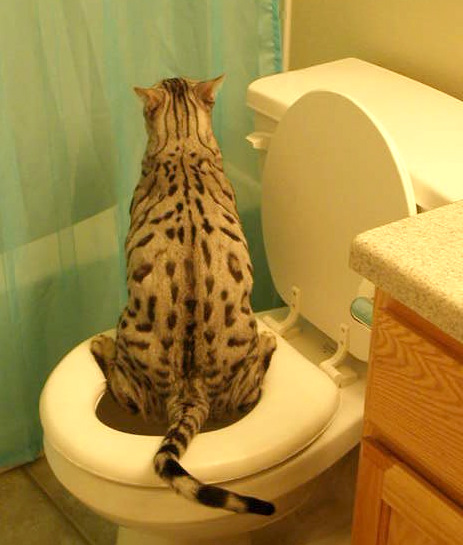Reasons You Must Never Flush Cat Poop Down Your Toilet - Critical Information
Reasons You Must Never Flush Cat Poop Down Your Toilet - Critical Information
Blog Article
They are making a number of good pointers on the subject of Don’t flush cat feces down the toilet overall in this post underneath.

Intro
As pet cat proprietors, it's vital to be mindful of exactly how we get rid of our feline close friends' waste. While it may seem practical to flush feline poop down the toilet, this practice can have damaging effects for both the atmosphere and human health and wellness.
Ecological Impact
Purging cat poop introduces dangerous virus and bloodsuckers right into the water, posturing a substantial threat to water environments. These pollutants can adversely affect marine life and compromise water quality.
Health Risks
In addition to ecological problems, purging feline waste can likewise position health threats to human beings. Pet cat feces might consist of Toxoplasma gondii, a parasite that can cause toxoplasmosis-- a potentially severe illness, particularly for expectant women and individuals with damaged body immune systems.
Alternatives to Flushing
Fortunately, there are more secure and a lot more accountable ways to get rid of pet cat poop. Take into consideration the complying with choices:
1. Scoop and Dispose in Trash
One of the most typical approach of throwing away feline poop is to scoop it into a biodegradable bag and toss it in the trash. Be sure to make use of a dedicated trash inside story and get rid of the waste quickly.
2. Usage Biodegradable Litter
Choose biodegradable pet cat trash made from materials such as corn or wheat. These trashes are eco-friendly and can be safely disposed of in the garbage.
3. Bury in the Yard
If you have a lawn, think about hiding pet cat waste in a designated area away from vegetable yards and water resources. Be sure to dig deep sufficient to prevent contamination of groundwater.
4. Install a Pet Waste Disposal System
Purchase an animal garbage disposal system particularly designed for feline waste. These systems use enzymes to break down the waste, reducing odor and ecological impact.
Conclusion
Accountable pet ownership expands beyond supplying food and shelter-- it likewise involves correct waste monitoring. By avoiding flushing cat poop down the bathroom and opting for different disposal methods, we can lessen our ecological footprint and secure human health.
Why You Should Never Flush Cat Poop Down the Toilet
A rose by any other name might smell as sweet, but not all poop is created equal. Toilets, and our sewage systems, are designed for human excrement, not animal waste. It might seem like it couldn’t hurt to toss cat feces into the loo, but it’s not a good idea to flush cat poop in the toilet.
First and foremost, assuming your cat uses a litter box, any waste is going to have litter on it. And even the smallest amount of litter can wreak havoc on plumbing.
Over time, small amounts build up, filling up your septic system. Most litter sold today is clumping; it is made from a type of clay that hardens when it gets wet. Ever tried to scrape old clumps from the bottom of a litter box? You know just how cement-hard it can get!
Now imagine just a small clump of that stuck in your pipes. A simple de-clogger like Drano isn’t going to cut it. And that means it’s going to cost you big time to fix it.
Parasitic Contamination
Believe it or not, your healthy kitty may be harboring a nasty parasite. Only cats excrete Toxoplasma in their feces. Yet it rarely causes serious health issues in the cats that are infected. Most people will be fine too if infected. Only pregnant women and people with compromised immune systems are at risk. (If you’ve ever heard how women who are expecting are excused from litter cleaning duty, Toxoplasma is why.)
But other animals may have a problem if infected with the parasite. And human water treatment systems aren’t designed to handle it. As a result, the systems don’t remove the parasite before discharging wastewater into local waterways. Fish, shellfish, and other marine life — otters in particular — are susceptible to toxoplasma. If exposed, most will end up with brain damage and many will die.
Depending on the species of fish, they may end up on someone’s fish hook and, ultimately on someone’s dinner plate. If that someone has a chronic illness, they’re at risk.
Skip the Toilet Training
We know there are folks out there who like to toilet train their cats. And we give them props, it takes a lot of work. But thanks to the toxoplasma, it’s not a good idea.

Hopefully you liked our section about How to Dispose of Cat Poop and Litter Without Plastic Bags. Thank you so much for spending some time to read our article. Sharing is caring. You never know, you will be doing someone a favor. Thanks a lot for your time. Visit us again soon.
Click Here Report this page